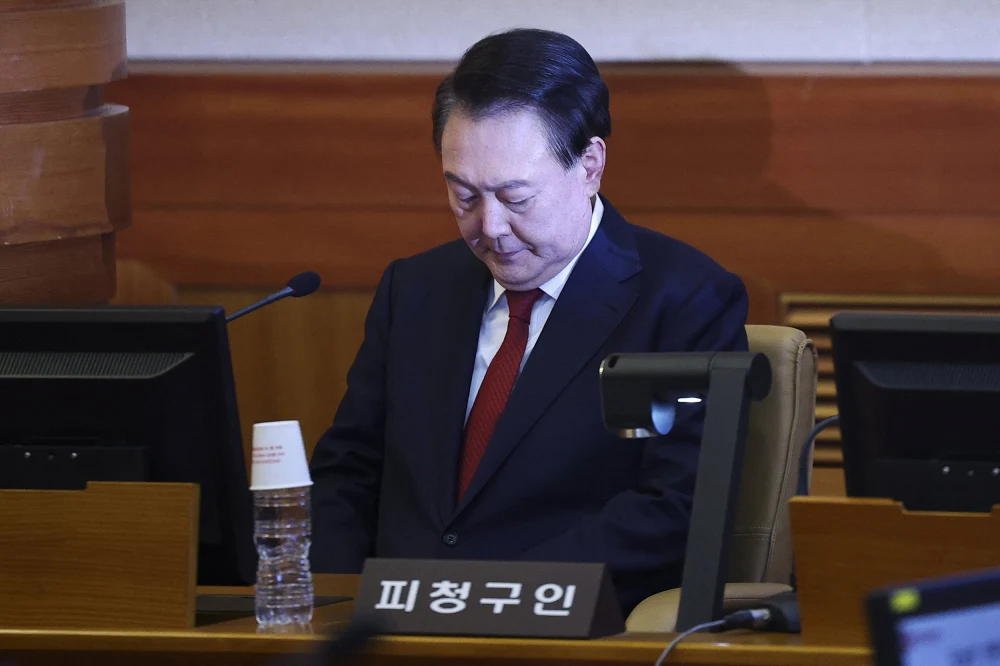South Korean prosecutors have indicted impeached President Yoon Suk Yeol on charges of leading an insurrection by declaring martial law on the 3rd of December 2024.
This decision follows a week after anti-corruption investigators recommended that Yoon be formally charged.
Democratic Party spokesman Han Min-soo, addressing a press conference, stated, “The prosecution has decided to indict Yoon Suk Yeol, who is facing charges of being a ringleader of insurrection,” adding, “The punishment of the ringleader of insurrection now begins finally.”
Yoon declared martial law on the 3rd of December and sent troops and police into the Assembly. However, enough lawmakers still managed to enter the chamber and vote unanimously to reject Yoon’s decree, forcing his cabinet to rescind it.
The Constitutional Court is separately reviewing whether to formally dismiss Yoon or reinstate him as president.
The crime of insurrection is one of the few charges for which the president of South Korea does not enjoy immunity, and it carries severe penalties, including life imprisonment or death.
Since his arrest on the 15th of January, Yoon has been in solitary confinement. He became the first sitting president to be arrested after a standoff between his security detail and arresting officials.
Yoon, a conservative, has consistently denied any wrongdoing, claiming his declaration of martial law was a legitimate act intended to raise public awareness of the threat posed by a liberal-controlled National Assembly obstructing his agenda and impeaching top officials.
Over the weekend, a court twice denied prosecutors’ request to extend Yoon’s detention as they continued their investigation, but with the new charges, they have once again asked for him to remain in custody.
Yoon’s lawyers have demanded his immediate release, calling his detention illegal.
At a Constitutional Court hearing last week during his impeachment trial, Yoon and his lawyers argued that the martial law was never intended to be fully enforced, but rather meant as a warning to break political deadlock.
The Constitutional Court now has 180 days to decide whether to remove Yoon from office or restore his presidential powers.
South Korea’s opposition-led parliament impeached Yoon on the 14th of December, making him the second conservative president to be impeached in the country’s history.
Yoon rescinded his martial law measures about six hours later, after lawmakers, confronting soldiers in parliament, voted against the decree.
Should Yoon be removed from office, a presidential election would be held within 60 days.



